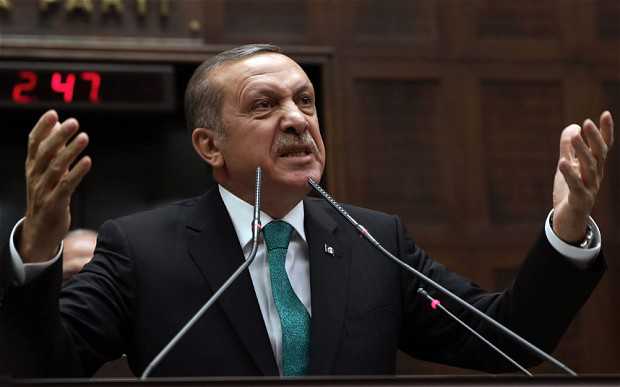ISTANBUL — Turkey’s Islamist prime minister, barred from seeking a fourth term, is exploring ways to create a strongman presidency and run for the powerful new office next year, but critics fear his political engineering could undermine the country’s secular democratic tradition.
Recep Tayyip Erdogan, prime minister since 2003, has rejected the American constitutional blueprint of checks and balances between the White House and Congress, and instead has called for a “Turkish-style presidential system.”
“The U.S. president cannot appoint an ambassador. He cannot even solely decide on the sale of a helicopter,” Mr. Erdogan told Turkish reporters during a recent trip to Spain.
Members of parliament from Mr. Erdogan’s ruling Justice and Development Party recently outlined a proposal to transfer executive power from the prime minister to a muscular presidency, now largely a ceremonial post. The office would include the authority to hire and fire Cabinet ministers at will.
“He doesn’t do ‘checks-and-balances,’” said Sinan Ulgen, a former Turkish diplomat who now heads the Center for Economics and Foreign Policy Studies in Istanbul. “In succeeding elections, every time he has actually become more polarizing, and that’s certainly been his modus operandi lately.”
Mr. Erdogan’s domestic critics fear that he is establishing an authoritarian state with a hidden agenda to impose strict Islamic laws, but Turkey’s allies largely have been reluctant to criticize him.
Strategic ally
Turkey, which sits strategically between Europe and the Middle East, is a strong U.S. ally and a member of NATO since 1952 — only three years after the establishment of the Western military pact.
NATO countries have pledged to send Turkey six Patriot missile batteries and troops to defend itself against missiles from Syria, whose 21-month-old civil war has spilled over the Turkish border.
Mr. Erdogan, 58, has denounced Syrian President Bashar Assad for his indiscriminate attacks on civilians and is sheltering members of the rebel Free Syrian Army.
The foreign policy implications of a strong Turkish presidency are unclear, but a domestic uproar against any power grab by Mr. Erdogan could force Western democracies to scrutinize his motives.
“Changing Turkey’s regime to a presidential system is a huge challenge,” said Ozgur Unluhisarcikli, director of the German Marshall Fund office in Ankara. “And it will be the major issue in Turkey in the upcoming years.”
Mr. Erdogan is trying to use his party’s dominance in parliament to change the constitution.
Opposition parties, fearful of Mr. Erdogan’s apparently limitless political ambitions, are resisting. The conflict could spark a political fight that likely would decide the limits to Mr. Erdogan’s power as president after the 2014 election.
Mr. Erdogan was re-elected unopposed as party leader in September, but party rules will prevent him from running again for prime minister after his third term expires in three years. He recently said he is prepared to serve in public office for the next 10 years.
via Turkey’s leader vies for role of strongman – Washington Times.
more : https://www.washingtontimes.com/news/2013/jan/1/turkeys-leader-vies-for-role-of-strongman/?utm_source=RSS_Feed&utm_medium=RSS


Leave a Reply